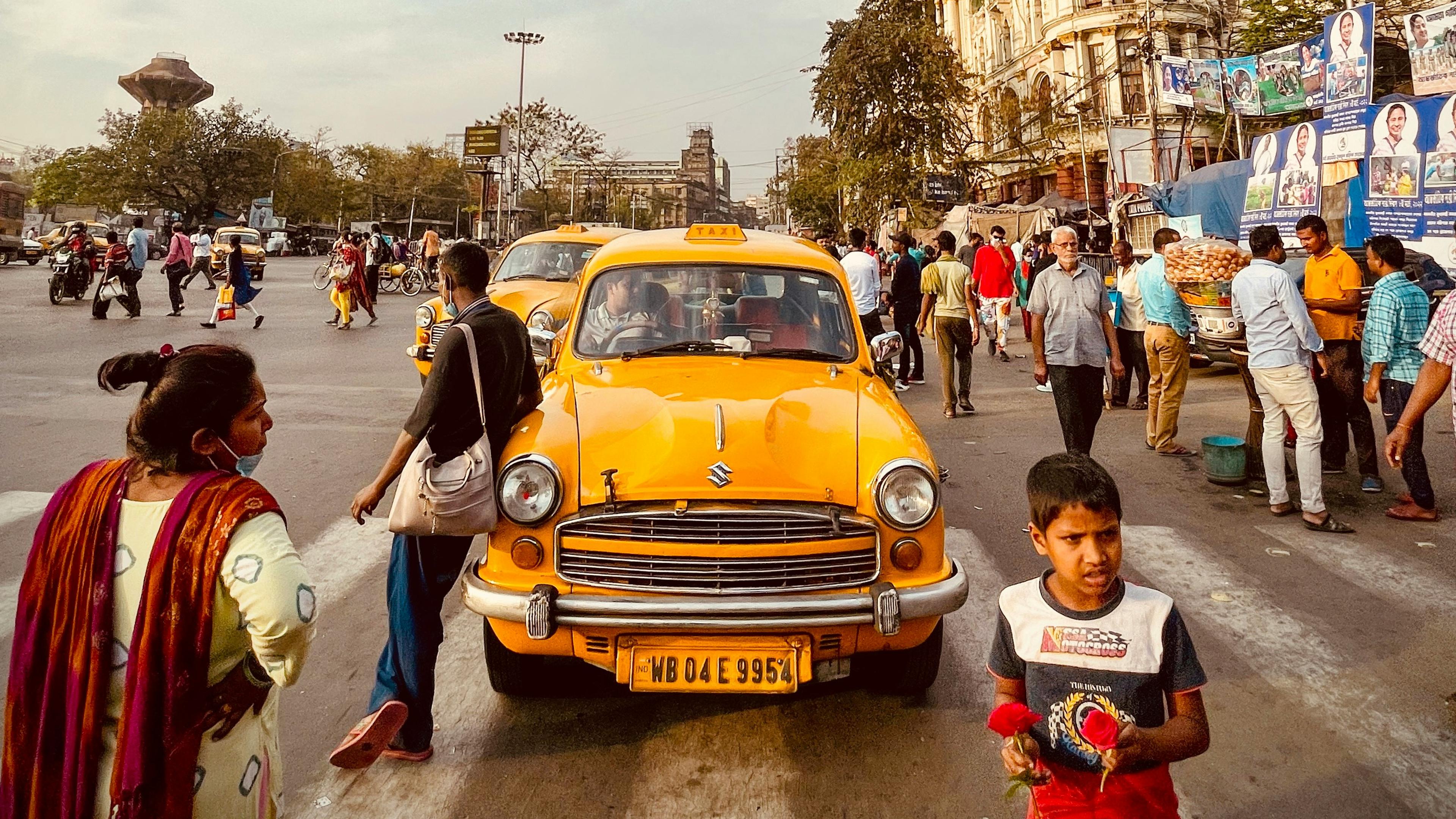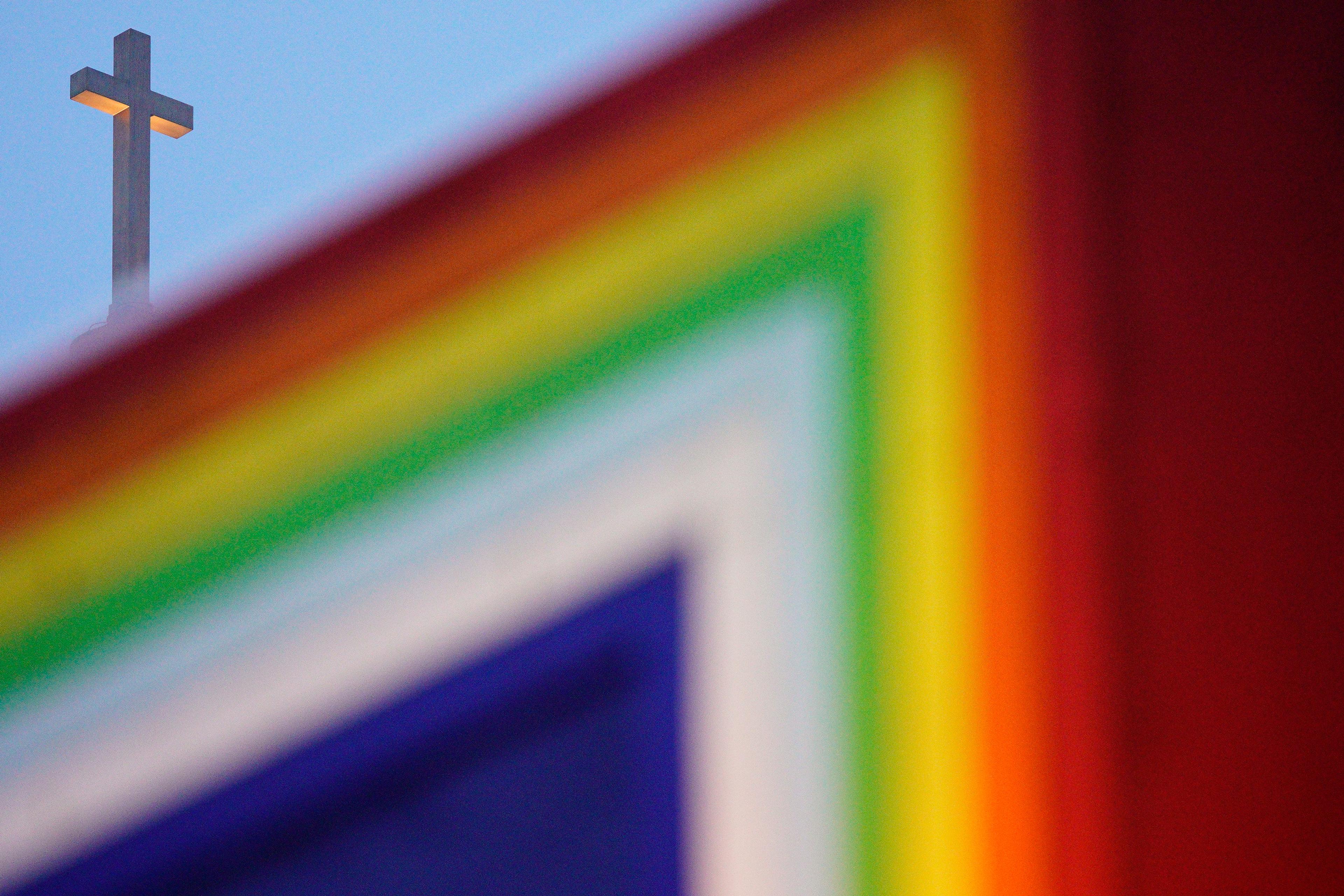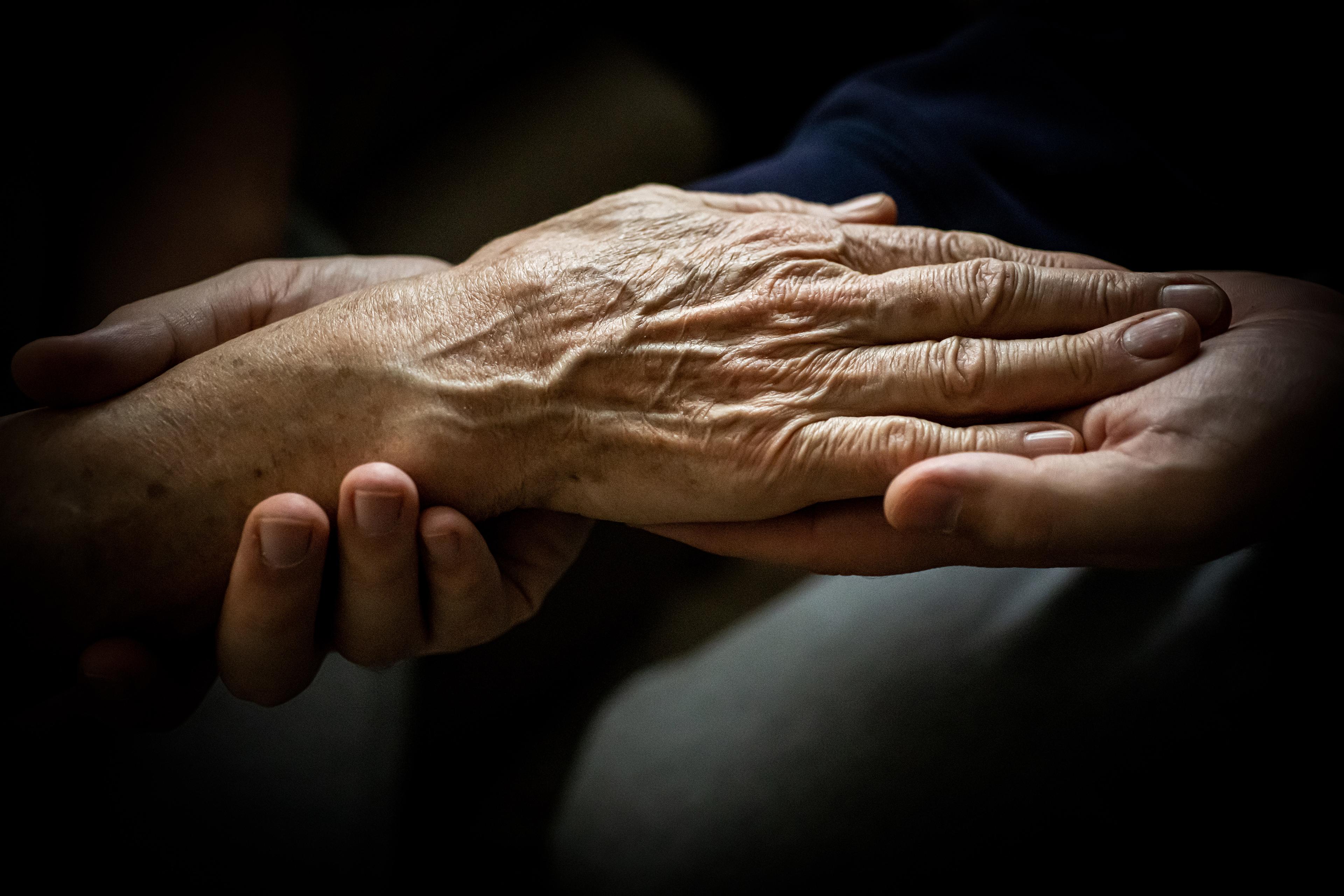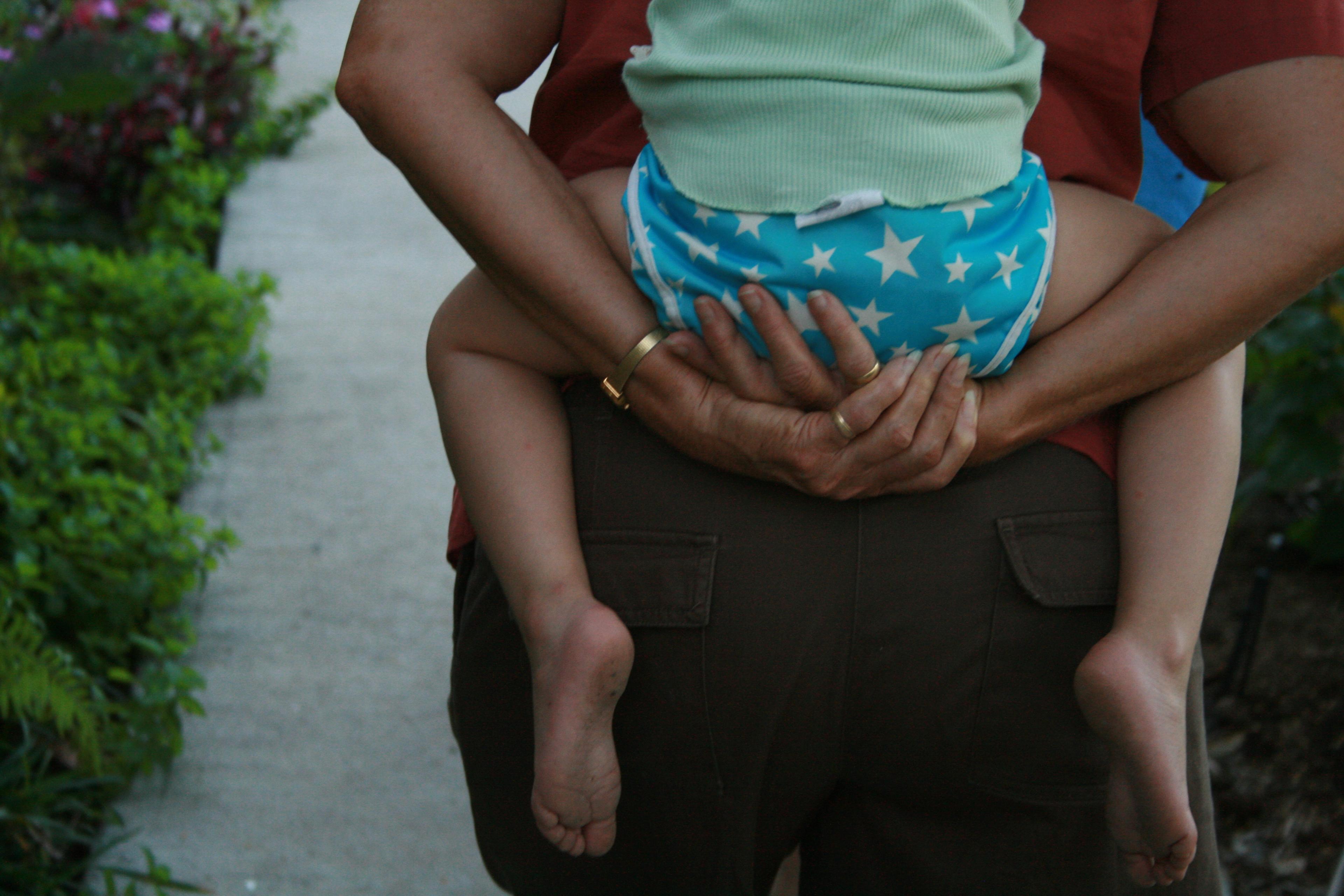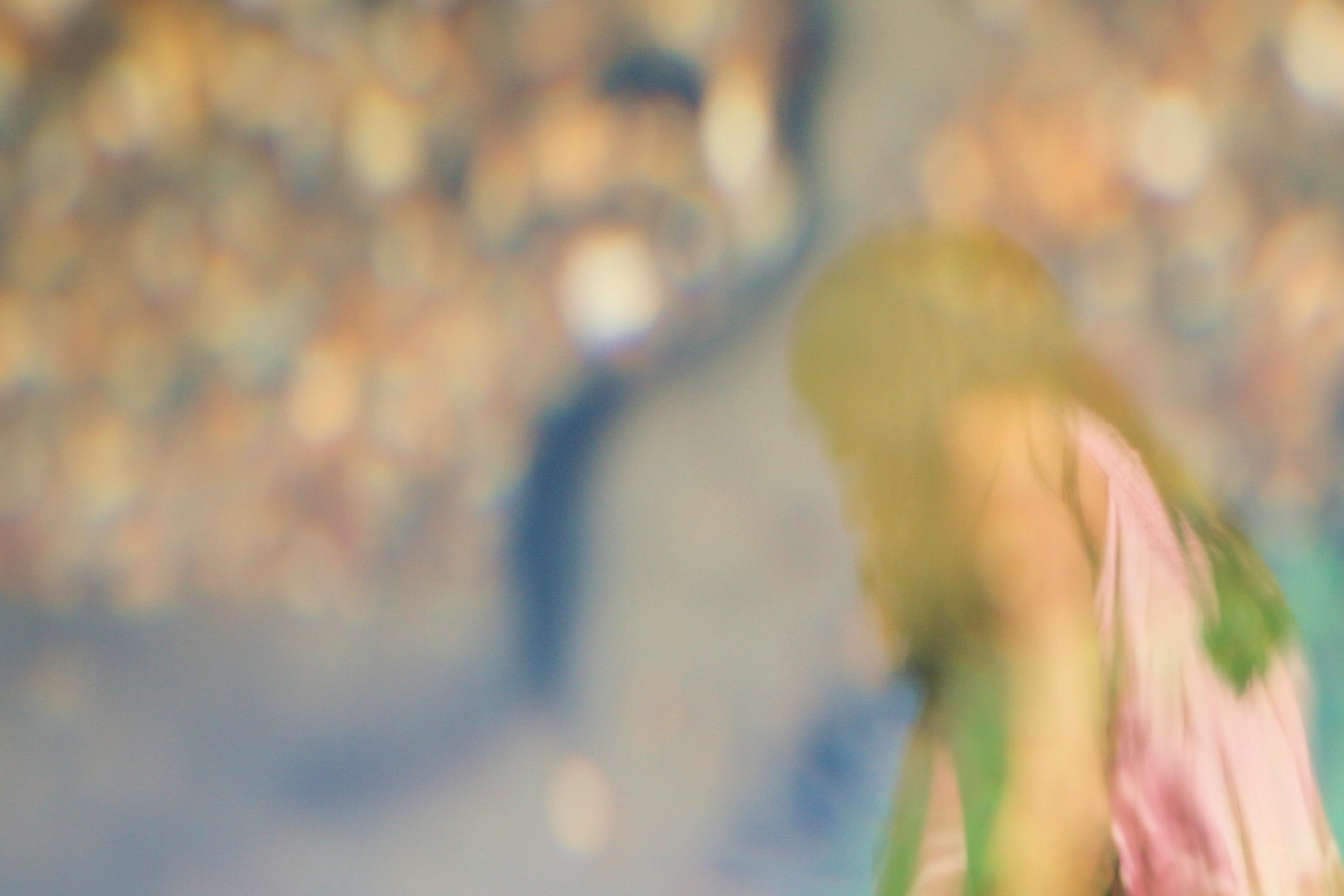I was a teenage fundamentalist. My Sunday School teacher said it was a sin to swear, so I never cussed, not even under my breath or by accident. My youth pastor encouraged me to take an oath to never drink alcohol, not even in adulthood. ‘You can never break an oath to God,’ she said. The youth evangelist said that dating was just practising for divorce, so I signed a year-long commitment to ‘date Jesus’ instead. I re-committed myself yearly.
What does a fundamentalist teenager look like in the 1990s? She is not loud, confident or belligerent. She does not shout at women going into Planned Parenthood or support specific politicians. She is deeply shy, uncertain and terrified. Hell is real, and her less-religious friends may end up there. To prevent this, she must live an exceptional life. After all, if she is an imperfect witness for Christ by leading someone to sin, swearing or doubting her beliefs, others could turn away and suffer – eternally.
In middle school, my friends and I sat together at lunch. All the girls fawned over Jonathan Taylor Thomas in Nikki’s Teen Beat. I thought he was cute, too, but guilt wriggled in my tummy, so I couldn’t admit it. (Lust was a sin.) ‘Can I have one of the tear-out posters?’ Samantha asked. ‘Oh, me too?’ asked Lydia. Nikki was generous in handing out the posters. ‘Do you want one?’ she asked me.
‘Thanks,’ I said, looking at his floppy blond haircut and big smile. I smiled back.
JTT sat in the back of my yellow English folder for days, peeking at me. Each time I saw his blue eyes, I felt a pang of guilt. You’re not supposed to think about boys, my heart told me. In the youth evangelist’s voice in my head, I heard: Is focusing on this boy bringing you closer to Jesus?
I couldn’t take it. I didn’t want to throw it away – that seemed so disrespectful. But I also couldn’t keep it. ‘Can I give it back to you?’ I asked Nikki one morning. She took the poster and, to her credit, never made me feel bad about returning it.
Fundamentalism was exhausting. But here is a spoiler: it didn’t stick.
It was my fourth summer as a teenager involved in missionary work, and the intense July heat of Kolkata, India, made me sweat. I was a 17-year-old from Indiana, unaccustomed to the sounds of the city: car horns and bus engines and roaring trains. Up until then, the loudest thing in my life was the roar of engines at the county dragstrip, a few miles from home. In Kolkata, Bollywood music played on the radio in a taxicab, the metro train’s brakes screeched as it pulled into the station, rock doves fluttered and cooed on the little patio off our room at the YMCA. It was a whole new sensory experience, and I loved it.
Sometimes, the traffic kept me up at night. Burning refuse gave me headaches. I saw people in poverty and didn’t know what to do about it. Yet I also saw couples holding hands in the park, mothers walking their children to school, and people heading to and from the badminton club at the YMCA. We went to church on Sundays and learned songs in Hindi. Kids taught me new English rhymes and Hindi numbers. The pizza place we went to had a poster of the Mona Lisa on the wall, smoking a huge blunt.
There was poverty in Kolkata, to be sure. But demonic? Her words stung me
One day I found myself in the Oxford Bookstore, which felt a bit like home: air-conditioning cold enough to give me goosebumps and the unmistakable scent of books. From the stacks, I selected authors I had never heard of. Margaret Atwood. David Foster Wallace. Cormac McCarthy. James Baldwin. I picked up a thin novel that was completely new to me: Oranges Are Not the Only Fruit (1985) by Jeanette Winterson. The back of the book said that it was a story of a child adopted by an extremely religious (and cruel) mother. I bought the book and took it back to the Y.
A few days later, a white-haired woman who called herself a prophetess came to the YMCA. Tired from our volunteer work, we gathered to listen to Anne-Rose, who was from New Zealand. ‘This is a dark, evil place,’ she said in a low, gentle voice. ‘The Indian subcontinent is covered in a demonic presence that has been here for generations. That’s why so many missionaries struggle here, in this oppressive place.’
My ears burned red. There was poverty in Kolkata, to be sure. I had witnessed many things in this city that I had never seen before – homelessness, starvation, suffering. But demonic? Her words stung me.
In Kolkata, I had met kind people everywhere I went. I enjoyed talking with the nuns at the hospital where I was volunteering; we laughed together as they tried to teach me to wash clothes by hand and mop the floors. The bookstore staff were friendly and, everywhere I looked, life was brimming. Babies laughing, children teasing, food vendors offering delicious flavours, music that made you want to dance.
Were there demons that caused Kolkata’s poverty? Or was it generations of stolen wealth and colonialism? This was the first time that I had ever felt a disconnect between what a Christian adult was telling me and what I saw with my own eyes.
I didn’t read Oranges Are Not the Only Fruit right away. Back at home, I had colleges to apply to. One day, in government class, we watched an episode of the new TV show The West Wing, which featured President Bartlet criticising the hypocrisy of a woman who condemned gay people but disregarded much of the rest of the Bible. I felt a familiar but confusing pang of guilt. Conviction was supposed to be the Holy Spirit strumming a chord in your heart, so you know you’ve done something wrong but, in this moment, the conviction came from the show, not God. I didn’t know what to do with that feeling. If a TV show could stir something deeper than a sermon, did that mean my moral compass was broken – or just waking up? Was I as guilty as this character?
That same year, my brother decided that Philippians 4:8 meant we could watch or listen to whatever we wanted, as long as it was noble and true. (‘Finally, brothers and sisters, whatever is true, whatever is noble, whatever is right, whatever is pure, whatever is lovely, whatever is admirable – if anything is excellent or praiseworthy – think about such things.’) Suddenly, I had the justification to watch all those forbidden movies and TV shows: Magnolia. The Royal Tenenbaums. The X-Files. I consumed media like I had been starved of art for my entire lifetime.
When I got accepted to an evangelical Christian college, a place slightly less rigid than the fundamentalist tradition from which I came, I still believed in hell, but I was confident that the Christian kids around me were unlikely to be headed there. I didn’t need to be a perfect witness.
The fundamentalism didn’t make sense compared with the life I was actually living, which was joyful
In an intro-level course, the entire student body read books that represented different worldviews, like Siddhartha, Brave New World, and The Stranger. When I read Tony Kushner’s Angels in America (1991), I was stunned to silence by the stories of men dealing with AIDS. I was learning about things far outside my limited experience of the world.
In Romantic Lit, I read Oscar Wilde’s poem about the love letters of John Keats being sold at auction. He compared that bidding frenzy to the wrangling over Jesus’ garments after the crucifixion, and my breath caught in my chest at the comparison. I began to think: Maybe being gay is just part of who Wilde was, not some sin.
I joined a club about the intersections of faith and culture. Together, we advocated for an unedited version of the film Amélie (2001) to be shown on campus – orgasm scene and all. My high-school self would hardly have recognised me.
I made a best friend, Neville, who grew up like I had. We spent hours on the phone or in the car, talking about actors, directors, screenplays and soundtracks. My diaries are full of reflections on what movies we saw and what books we read.
I even hung a poster of Ewan McGregor on my wall.
I still didn’t cuss, have sex or drink alcohol. I didn’t even dance because of the university’s rules. But I started to realise that the fundamentalism of my youth didn’t make sense compared with the life I was actually living, which was joyful. Beautiful things crept into my dark, scary world. And the scary threats of hell just couldn’t compete with the light.
One day in my dorm room, I picked up Oranges Are Not the Only Fruit to discover a love story between two girls, whose churches and families forbade it. I devoured the book and thought: ‘There is nothing wrong with these girls. Their love is not sin.’
My siblings, my parents and I have our own stories of how we emerged from fundamentalism, but there is one moment that we all share – a winter night in 2006. We awkwardly sat our dad down around our sister’s dining table and said we needed to know what was going on. He was so depressed that I was scared to come home to the house because I worried about what I would find. Our dad had our incredible mom, and four young adult kids who loved him. He also had a successful career in Christian music, and didn’t have to worry about money. What was causing his depression?
He intended to never tell us he was gay. Decades of hiding his feelings and trying to be straight had taken their toll on his mental and physical health. If he killed himself, he thought, no one would ever know his secret. He believed he would lose us if we knew. Death was a better option than losing his family.
Why would I choose a worldview of rules, rigidity and shame over love?
There was no way for fundamentalism to win this. When he uttered the words ‘I’m gay,’ none of us knew what the future would look like, but we all knew that he needed to be there for that future. Around that dining table, he found only love.
In the years to come, our parents divorced but stayed close, talking daily. Dad and Franco married on the shore of Lake Michigan with us standing alongside them. Our mom took a position on the board of an organisation that advocated for the acceptance of gay Christians, and she shared her story publicly to help other straight spouses. Twenty years after that night, my son introduced his grandparents to his friends: ‘This is my Grandma, my Papaw, and my Franco.’
Back then in that moment around the table, I had to choose between the fundamentalism of my youth and the dad who had loved me my entire life. Why would I choose a worldview? Why would I pick rules, rigidity and shame over love?
That night, I told my family: ‘Maybe God has been preparing me for this for a long time.’
